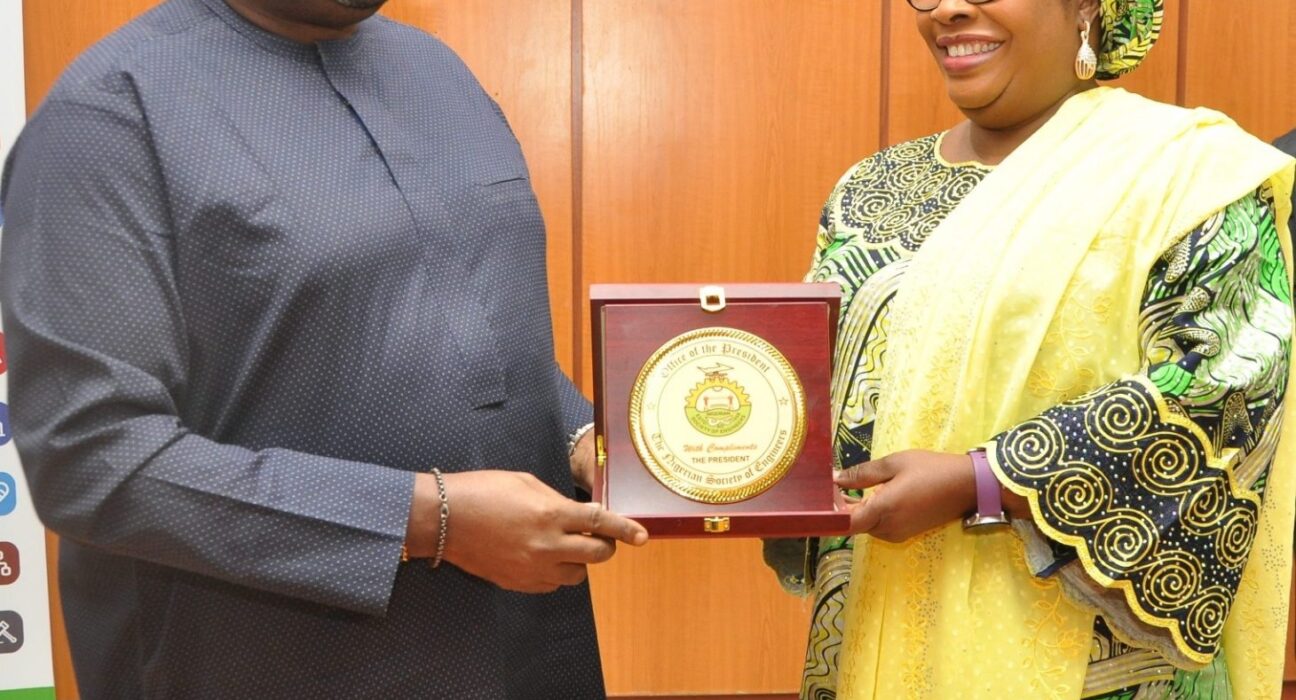Power Sector: Nigeria Took 40 Years to Achieve What we Accomplished in Just 2 Years Under Tinubu.

The Minister of Power, Adebayo Adelabu, announced a significant increase in Nigeria’s power generation, which has reached 6003 megawatts. This achievement, he noted, occurred in less than two years of the current administration, representing a remarkable growth in the sector.
Adelabu shared this information during a courtesy visit from members of the Nigerian Society of Engineers (NSE), led by President Margret Oguntala, at the Power Ministry in Abuja. The purpose of the meeting was to discuss potential collaboration between the NSE and the ministry, particularly about the challenges plaguing the power sector.
The minister highlighted that it took Nigeria nearly 40 years to boost its power generation from 2000 megawatts in 1984 to just 4000 megawatts by 2022. However, with the initiatives under President Bola Tinubu’s administration, power generation has surged to 6003 megawatts in under two years.
“In 1984, our electricity generation was at 2000MW, and it only reached 4000MW about 40 years later, around 2022. Yet, within the past two years, we’ve increased it to over 6000 megawatts, thanks to the efforts of President Bola Ahmed Tinubu and the recognition of this sector as vital for economic growth,” Adelabu stated.
He attributed the remarkable increase in power generation to the administration’s dedication to reviving the power sector and stressed the need for a stronger partnership with the NSE to tackle ongoing challenges.
Adelabu urged the NSE to take its responsibilities seriously and contribute to enhancing the efficiency of the ministry’s critical infrastructure. He observed that despite Nigeria having many engineers, the country continues to struggle with significant issues in its power infrastructure, including grid failures.
“I challenge you to ensure that your activities improve the efficiency of this vital infrastructure. You must demonstrate that you are fulfilling your responsibilities. With so many engineers in Nigeria, why do we still face power grid failures? Should it be this way? Absolutely not,” Adelabu stated.
He also highlighted the necessity for workforce development and training, urging the NSE to prioritize these areas. He advised the organization to concentrate on overcoming challenges in infrastructural development as a way to demonstrate patriotism and dedication to the nation.
“It reflects poorly on us if we cannot resolve these challenges, so I’m calling on your society to collaborate with us on Nigeria’s issues using your expertise. The ministry does not award contracts to companies that are not members of your organization. The power sector is distinct, and while we are meeting our obligations to you, the same cannot be said for the NSE,” Adelabu added.
On the subject of workforce development and local capacity enhancement, the minister called for collaboration with the Federal Government, emphasizing the need for Nigeria to produce all necessary materials for the power sector domestically to promote local employment, support domestic industries, and conserve foreign currency.
In response, NSE President Margret Oguntala assured the minister that the organization would accept his challenge and reaffirmed NSE’s commitment to providing technical expertise to improve Nigeria’s power sector, encourage innovation, and boost capacity development in the industry.








